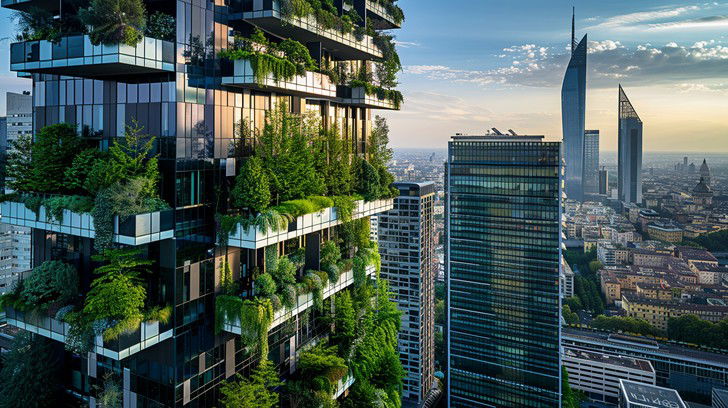What Role Does Technology Play in Shaping Sustainable Urban Communities?
In an increasingly urbanized world, cities are looking for smarter, more efficient ways to grow while reducing their impact on the planet. Enter technology—an indispensable force driving the creation of sustainable urban communities. From eco-conscious transportation and smart infrastructure to energy-efficient homes, technology is helping us reimagine city life for a greener future.

img via stockcake
Smart Infrastructure and Urban Planning
Technology has become central to how cities are designed and built. Using tools like Geographic Information Systems (GIS) and data analytics, urban planners can better understand traffic flow, population density, and energy usage, allowing them to create more efficient city layouts. Smart sensors installed in roads, buildings, and public spaces collect real-time data that helps cities reduce energy consumption, manage waste more efficiently, and ensure that infrastructure is used optimally. For instance, adaptive traffic signals help reduce congestion and carbon emissions by adjusting based on vehicle flow, while smart street lighting systems save energy by dimming or turning off when not needed.
Green Buildings and Eco-Friendly Homes
One of the most significant areas where technology supports sustainability is in real estate and housing. Smart homes now incorporate energy-saving systems like automated lighting, intelligent climate control, and solar panel integration. In Sri Lanka, the shift toward sustainable living is visible in modern developments such as Prime Residencies, where new apartments increasingly feature energy-efficient designs, water-saving fixtures, and environmentally friendly materials. These innovations not only reduce utility bills but also lower the environmental footprint of residents. With more homeowners seeking a balance between comfort and consciousness, real estate developers are being encouraged to design buildings that meet both needs—proving that sustainability and modern living can go hand in hand.
Sustainable Transportation Systems
Urban mobility is another space where technology is playing a transformative role. Public transport systems in many cities are being enhanced with real-time tracking, digital ticketing, and predictive maintenance, making them more reliable and user-friendly. Electric vehicles (EVs), bike-sharing programs, and pedestrian-friendly infrastructure are replacing car-centric models of the past. Ride-hailing apps and carpooling platforms reduce the number of vehicles on the road, cutting down on traffic congestion and emissions. As EV adoption rises in Sri Lanka and other developing nations, the demand for supporting infrastructure such as charging stations and green mobility planning is also growing—setting the stage for cleaner, quieter cities.
Waste Management and Water Conservation
Technology is helping cities deal with two other major challenges: waste and water. IoT-enabled bins can alert sanitation workers when full, allowing for more efficient waste collection. At a community level, AI-driven recycling systems are helping sort materials more effectively, ensuring a higher recycling rate. Water conservation is also benefiting from smart meters, which allow residents to monitor usage in real time and detect leaks. In residential communities and commercial properties alike, these tools contribute to long-term sustainability by reducing waste and promoting mindful consumption.
Community Engagement Through Technology
Creating a sustainable urban community isn’t just about infrastructure—it’s also about people. Apps and digital platforms allow residents to participate in local decision-making, report environmental concerns, or even share surplus food and goods with neighbours. These platforms foster a stronger sense of community and collective responsibility. When people are engaged and informed, they’re more likely to support eco-friendly initiatives and adopt sustainable habits themselves.
Building a Smarter, Greener Tomorrow
Technology is no longer just a convenience—it's a cornerstone of building sustainable urban communities. From smart infrastructure and eco-conscious design to digitally connected neighbourhoods, innovation is redefining how we live, work, and grow within cities. For homebuyers and investors, this shift also brings exciting new possibilities. Modern developments are now blending style, comfort, and sustainability in thoughtful ways. As more people seek apartments for sale in Sri Lanka that align with environmentally friendly living, technology will remain the driving force behind this green transformation.
